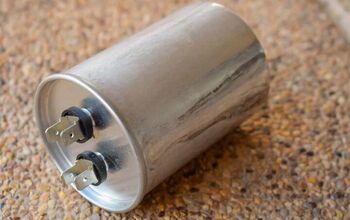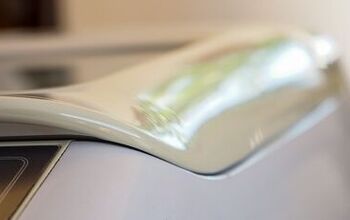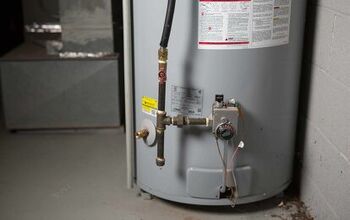Liquid Pool Cover Vs. Solar Blanket: What Are The Major Differences?

It’s currently the best time for a pool day in my neighborhood. We all love to splash and play in the sun, but it’s important to realize how much water can evaporate during these hot days of the year. Conserving water is a smart (and earth-friendly) way to avoid higher bills. Having a cover that helps keep water in your pool, therefore, is a must.
Liquid pool covers offer a way to add an invisible shield to your pool that prevents evaporation. They are easier to store, cheaper, low-maintenance, and safe to use. Solar blankets are thin plastic sheets that reduce evaporation without chemicals. They prevent leaves from falling in, and are also able to last for years.
Most people prefer one over another. However, we’re willing to bet that you will find one to be better than the other after you read up on the two.
Do You a Need Pool, Spa, or Hot Tub Contractor?
Get free, zero-commitment quotes from pro contractors near you.

Before We Begin: Understanding What Each Cover Does
Currently, there are two different types of covers for pools. There are solar blankets and liquid pool covers. Both will help reduce your pool’s evaporation rates significantly. Even though they are fairly different, they both offer a lot of perks. In the battle between poo covers and solar blankets, there seems to be a deadlock.
What Is A Liquid Pool Cover?
A liquid pool cover is a bottle of non-toxic solution that gets poured on top of the pool. This creates a microscopic film over the pool that locks water inside without harming people who are swimming. You do not have to remove the pool cover in order to swim. You just dive right in, and the pool cover will go back to the surface of the pool naturally.
What Is A Solar Blanket?
Unlike liquid pool covers, solar blankets are thin sheets of plastic that don’t use chemicals to lock in heat or water. Rather, they use actual solid material that is gently placed on top of the pool. When you’re ready to swim, you just remove the solar blanket, wipe it down, and store it until you need to place it back again.
What Are The Pros And Cons Of A Liquid Pool Cover?
Liquid pool covers are increasingly popular because they are modern and more convenient. This is what you should be aware of if you choose this route:
- They are way more convenient. There’s no storing, just pouring! You don’t have to take the pool cover off and put it back on again. This is the ultimate way to set-and-forget.
- Most consider it to be environmentally friendly and non-toxic. While there’s always a chance that there could be an undiscovered side effect we don’t know about, right now, it’s good to go. These covers are safe, biodegradable, and totally non-toxic.
- They probably won’t harm your pool. These microscopic films aren’t clingy enough to build up in filters or piping, if that’s what you’re worried about.
- They are better at trapping heat than regular pool covers. Surprised? So were we when we researched this stuff. Go figure.
- You will need to top off your pool cover at least once a month. If you use your pool a lot more, then you will need to do it every week. Oh, and you might also have to fish out more leaves and stuff too.
What Are The Pros And Cons Of A Solar Blanket?
Though liquid pool covers are popular, many people still prefer solar blankets. They’re tried and true. Here’s why you might fall into this school of thought.
- No chemicals, no problem. With all the chemicals you need for a typical non-saltwater pool, you would be forgiven if you get a little testy when you’re asked to add even more to the mix. Even though pool covers are nontoxic, the truth is that some people would rather forgo chemicals all the way. This is the most common reason why people prefer solar blankets.
- Pay once, use for years. While liquid pool covers are cheap upfront, you have to pay for them every couple of months. Those numbers add up over time, making it the more expensive option long-term.
- Plastic isn’t quite healthy for the environment. Even if you are worried about the issue of chemicals seeping into the atmosphere, it’s hard to ignore that plastics tend to have a very negative impact on the Earth, just from their creation alone.
- Easy to clean. Liquid pool covers don’t need cleaning, sure, but a typical solar blanket will not be too hard to clean, either.
- No harm to your pool, period. Some people worry about the liquid pool cover film coating filters or pipes. With solar blankets, there is literally zero chance of this happening. After all, there are no chemicals involved.
How Much Does Each Type Of Pool Cover Cost?
Now that we’ve gone over the upsides and downsides of both types, let’s talk about the elephant in the room. Even if you’re wealthy, you will have a moment or two where you don’t want to spend more money than you have to. So, let’s talk about the type of pool covers and what you should expect to pay.
Liquid pool covers are the cheapest option upfront. A single bottle of liquid pool cover will be between $15 to $25 in most cases, with many companies offering bulk discounts for people who are open to stocking up. You will need to keep paying that fee as part of your pool maintenance.
Regular solar blankets, on the other hand, will cost between $50 to $300. If you have a specialty pool that has a unique shape, you may need a custom cut solar blanket. This can cost extra. Though that can be a major drawback, there is one perk we want to emphasize here: you only need to pay this money once!
Which Type Of Pool Cover Is More Effective?
The jury is out on this one. It can depend on a variety of factors, including the overall surroundings that your pool is in as well as the specific brand that you use. However, you shouldn’t be too worried about the efficacy. The differences between the two are minimal when it comes to effectiveness. They will both get the job done in a reasonably good manner.
At the end of the day, what you choose should depend on what you want to do in terms of price and maintenance. Thankfully, you can’t go wrong with either decision.
Do You a Need Pool, Spa, or Hot Tub Contractor?
Get free, zero-commitment quotes from pro contractors near you.

Related Questions
Can you swim with a liquid pool cover?
Yes, you can safely swim with a liquid pool cover. The coverage that liquid pool cover offers is only a couple of micrometers thick. When you splash around the pool, the cover offers no resistance. Moreover, it’s designed to sit on top of water regardless of what you do. So after the cover sinks from pressure that is applied to the pool’s water surface, the cover will float right back up to the top.
Can you use a liquid pool cover in place of a pool heater?
While a liquid pool cover can offer a warmer pool temperature for a longer period of time, the truth is that it is not a substitute for a pool heater. Pool heaters offer a far higher level of warmth and control over the temperature than a pool cover does. The only thing that you can bet on with a liquid cover is that it can help lock warmth into the pool’s water for a set period of time.
Should I cover my swimming pool every night?
Absolutely, especially if you want to keep your heated pool heated. Covering your pool will help lock in the heat that you pumped into the pool for a longer period of time. Since temperatures drop during the night hours, your pool will lose heat if it’s not left covered. Pool covers offer insulation, which makes it easier for them to retain heat.

Ossiana Tepfenhart is an expert writer, focusing on interior design and general home tips. Writing is her life, and it's what she does best. Her interests include art and real estate investments.
More by Ossiana Tepfenhart



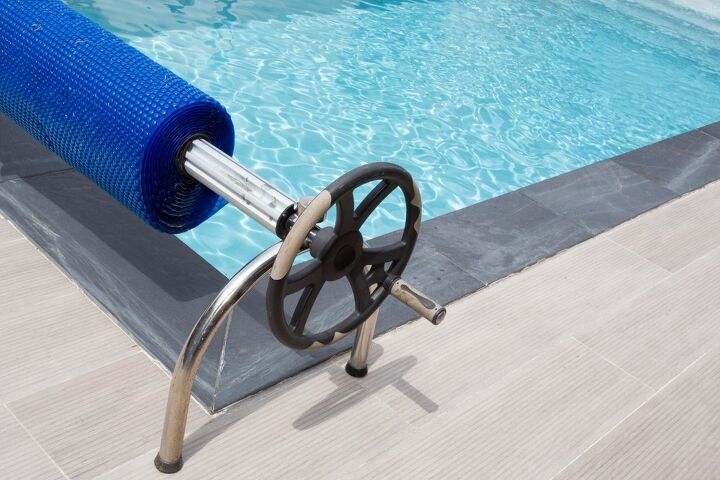






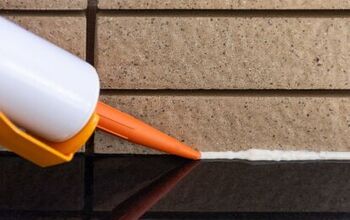

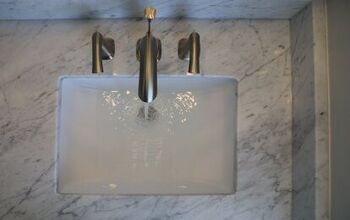

![The 5 Best Angle Grinders – [2022 Reviews & Buyer's Guide]](https://cdn-fastly.upgradedhome.com/media/2023/07/31/9071326/the-5-best-angle-grinders-2022-reviews-buyer-s-guide.jpg?size=350x220)
